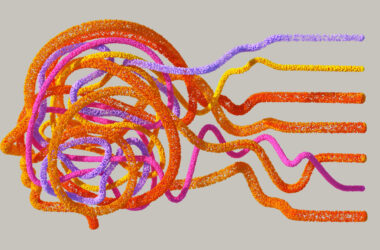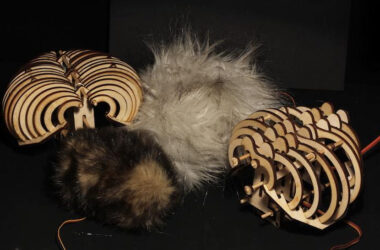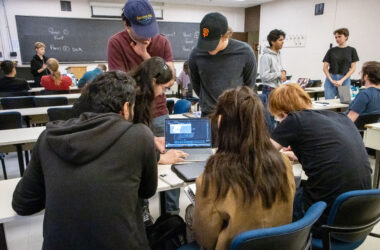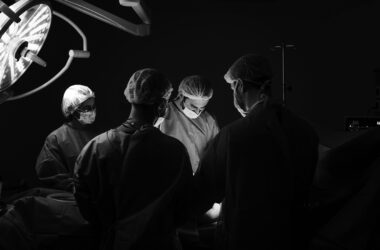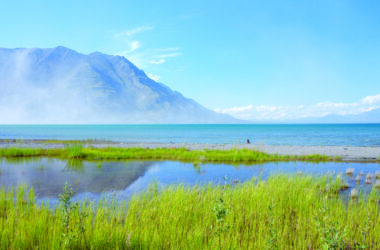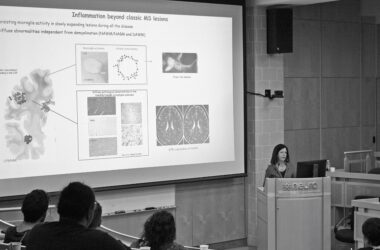The world as we know it would not be the same without the small but infinitely useful substance of sand. Incorporated into critically important products such as concrete and beauty processes such as microdermabrasion, sand finds its way into nearly every crevice of our lives. Author Vince Beiser knows this[Read More…]
Science & Technology
The latest in science and technology.
McGill and AI: Student artists paint a picture of emerging landscapes
The advent of artificial intelligence (AI) has profoundly influenced the way students learn, think, and create. As AI begins to enter mainstream usage, The Tribune aims to explore the evolving relationship between AI and members of the McGill community, including researchers, professors, and students. This week, Darren Li, U4 Quantitative[Read More…]
From eco-grief to empowerment: A blueprint for environmental activism and hopeful change
There is no doubt that there is increasing urgency to address environmental challenges around the world. On Nov. 15th, the McGill Environment Student Society (MESS) hosted a lecture on climate change, with a focus on how an uncertain climate future brings about increased anxiety. Featuring Jen Gobby, an affiliate assistant[Read More…]
Fuzzy Robots: Karon Maclean showcases emotionally-aware machinery
On Nov. 13, Karon MacLean, professor in the University of British Columbia’s Department of Computer Science, gave a talk covering her lab’s research on emotionally-interactive robots. MacLean’s work, which began with constructing robots at MIT in the 1980s, has always gone against the grain of traditional robotic engineering. “The hierarchy[Read More…]
Innovation ignited at McGill’s 8th Annual Physics Hackathon
Amidst the vibrant hum of friendly competition, close to 150 students gathered in the Rutherford Physics Building on Nov. 3 for the eighth Annual McGill Physics Hackathon. An enduring event, the hackathon has persisted seamlessly, even switching to virtual hacking during COVID-19. In its current edition, participants form teams of[Read More…]
Concrete’s sandy underbelly and hidden carbon costs
As McGill students, we might not find the sidewalks we walk on during our daily walks to class particularly interesting. And yet, concrete is a major pillar of our society—quite literally. Its use and production affect our lives in innumerable ways. The construction industry uses more concrete than any other[Read More…]
Inaugural Business Ethics Conference discusses a more inclusive health system
On Nov. 10, McGill’s Desautels Faculty of Management organized the Inaugural Business Ethics Conference. This full-day conference featured three insightful panel discussions centred around ethical management in the context of systemic challenges, with a focus on the healthcare industry. In the panel titled “Promoting Inclusion and Equity in Healthcare,” global[Read More…]
Trib explains: Environment degrees at McGill
What on Earth is going on with environment degrees at McGill? There are numerous programs, spread across different departments and faculties, each with their own take on one of the most critical issues humanity is facing. While students in the Bieler School of Environment share core courses, they specialize in[Read More…]
The Neuro’s Killam Seminar Series explores inflammation in multiple sclerosis
The Killam Seminar Series hosted a seminar about inflammation in multiple sclerosis (MS) at The Montreal Neurological Institute-Hospital (The Neuro) on Oct. 31. The seminar series invited Roberta Magliozzi, associate professor from the University of Verona, Italy, as part of The Neuro’s goal to bring in exceptional guest speakers from[Read More…]
Statistics Canada researcher shares insights into Canadian heat wave
Matthew Quick, a research analyst at Statistics Canada, gave an insightful talk at McGill on Friday, Nov. 3, about the impacts of extreme heat across Canada and the many socio-economic factors that contribute to an individual’s vulnerability to these effects. He presented three of his recent studies, each illuminating a[Read More…]

